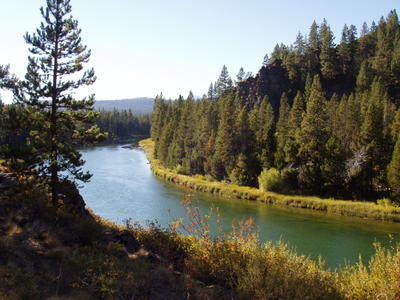I simply had to post this on my blog. Spot on.
Soli Deo Gloria.
~~~~~~~~~~~~~~~~~~~~~~~~~~~~~~~~~~~~~~~~~~~~~~~~~
Was Katrina Intelligent Design?September 2, 2005
On his 89th birthday (August 31) NPR Senior News Analyst, Daniel Schorr, observed that President Bush had “staked out a non-position” on the debate between evolution and intelligent design. Bush had said that “both sides ought to be properly taught in the schools of America.” Then, with manifest scorn, Schorr linked the devastation of Hurricane Katrina with the concept of intelligent design: “[Bush] might well have reflected that, if this was the result of intelligent design, then the designer has something to answer for.”
No, Mr. Schorr, you have something to answer for, not God. God answers to no man. Come, Daniel Schorr, take your place with Job and answer your Maker: “The Lord answered Job [and Daniel Schorr] out of the whirlwind and said: ‘Who is this that darkens counsel by words without knowledge? Dress for action like a man; I will question you, and you make it known to me. . . . Who shut in the sea with doors when it burst out from the womb, when I made clouds its garment and thick darkness its swaddling band, and prescribed limits for it and set bars and doors, and said, “Thus far shall you come, and no farther, and here shall your proud waves be stayed”?’” (Job 38:1-3, 8-11).
Who are you, O man, to answer back to God? Shall the pot say to the Potter, “This is an unintelligent way to show your justice and your power? Come, Maker of heaven and earth, sit at my feet—I have lived 89 years and have gotten much wisdom—and I will teach you—the eternal God—how to govern the universe”?
No. Rather let us put our hands on our mouths and weep both for the perishing and for ourselves who will soon follow. Whatever judgment has fallen, it is we who deserve it—all of us. And whatever mercy is mingled with judgment in New Orleans neither we nor they deserve.
God sent Jesus Christ into the world to save sinners. He did not suffer massive shame and pain because Americans are pretty good people. The magnitude of Christ’s suffering is owing to how deeply we deserve Katrina—all of us.
Our guilt in the face of Katrina is not that we can’t see the intelligence in God’s design, but that we can’t see arrogance in our own heart. God will always be guilty of high crimes for those who think they’ve never committed any.
But God commits no crimes when he brings famine, flood, and pestilence on the earth. “Does disaster come to a city, unless the Lord has done it?” (Amos 3:6). The answer of the prophet is no. God’s own testimony is the same: “I form light and create darkness, I make well-being and create calamity, I am the Lord, who does all these things” (Isaiah 45:7). And if we ask, is there intelligent design in it all, the Bible answers: “You meant evil . . . but God meant it [designed it] for good” (Genesis 50:20).
This will always be ludicrous to those who put the life of man above the glory of God. Until our hearts are broken, not just for the life-destroying misery of human pain, but for the God-insulting rebellion of human sin, we will not see intelligent design in the way God mingles mercy and judgment in this world. But for those who bow before God’s sovereign grace and say, “From him and through him and to him are all things. To him be glory forever,” they are able to affirm, “Oh, the depth of the riches and wisdom and knowledge of God! How unsearchable are his judgments and how inscrutable his ways!” (Romans 11:36, 33). And wisdom is another name for intelligent design.
No, Daniel Schorr, God does not answer to us. We answer to him. And we have only one answer: “Guilty as charged.” Every mouth is stopped and the whole world is accountable before God. There is only one hope to escape the flood of God’s wrath. It is not the levee of human virtue but the high ground called Calvary. All brokenhearted looters and news analysts and pastors are welcome there.
Famine Flood and Failing FortuneMeditation on Psalm 105:16
When the staff is broken,
And in judgment spoken
Righteousness is heard,
Think not God is silent,
Though the famine violent,
This is but His word.
He stands not to give account.
It is we who must before Him.
Come, let us adore Him!
When the flood is breaking
And your fear is waking,
Comfort not your soul,
Thinking the Almighty
Yielded up the right He
Once had to control.
Every river and the seas
Do His sovereign bidding purely.
This is comfort surely.
When your fortunes fail you,
Deep diseases ail you
And your death is near,
Know that Christ your Maker
He alone is Taker
Of your life and fear,
Fall before His power and pray:
Jesus, I now trust you merely,
You have bought me dearly.
By John Piper. ©Desiring God. Website:
www.desiringGod.org. Email: mail@desiringGod.org. Toll Free: 888.346.4700.













 <
/a>
<
/a>














